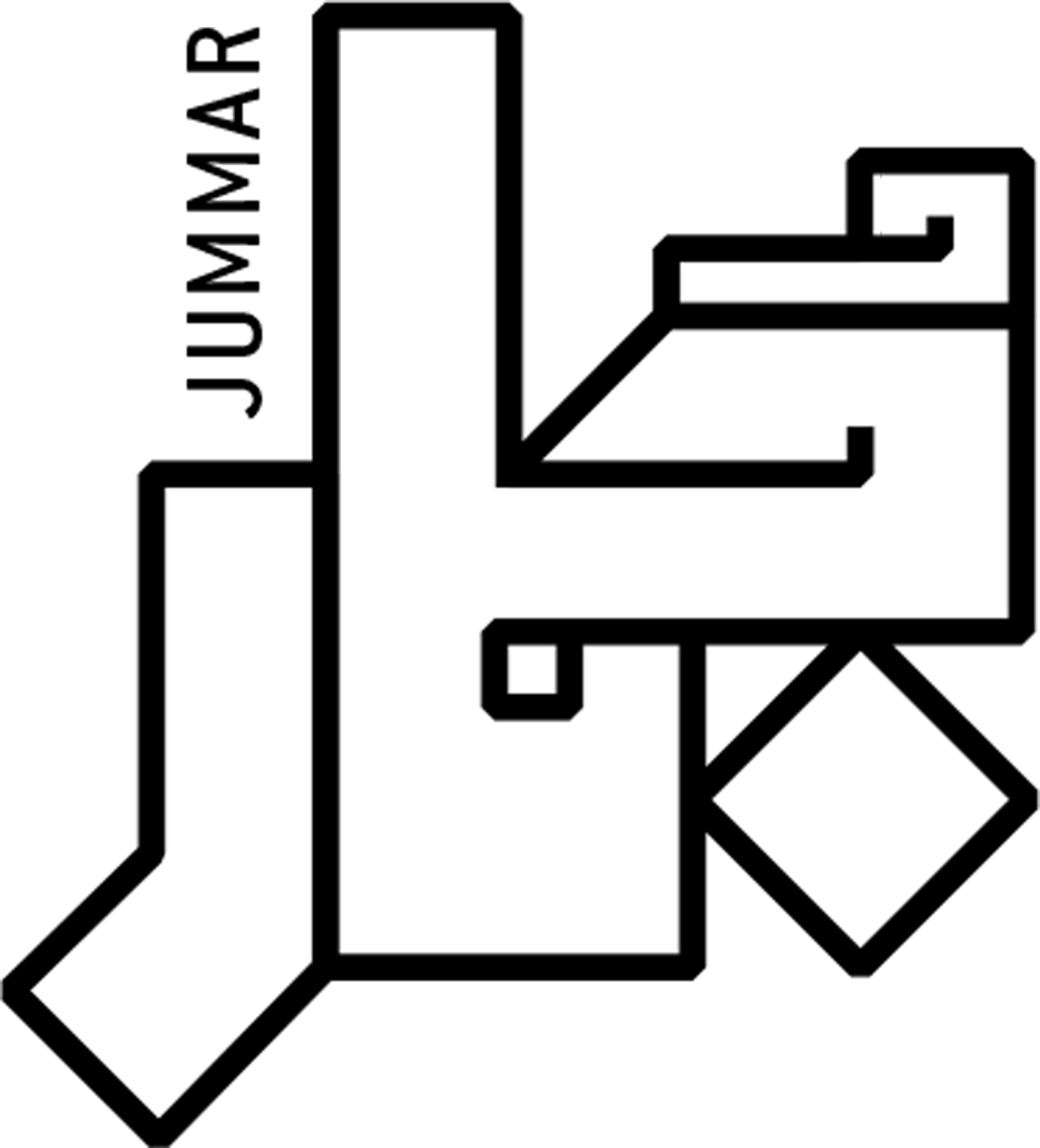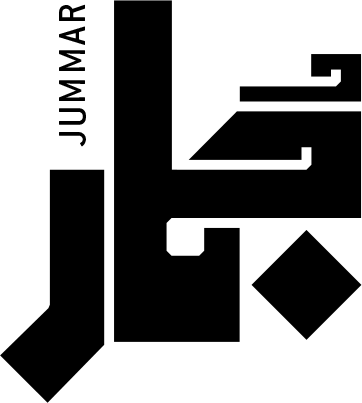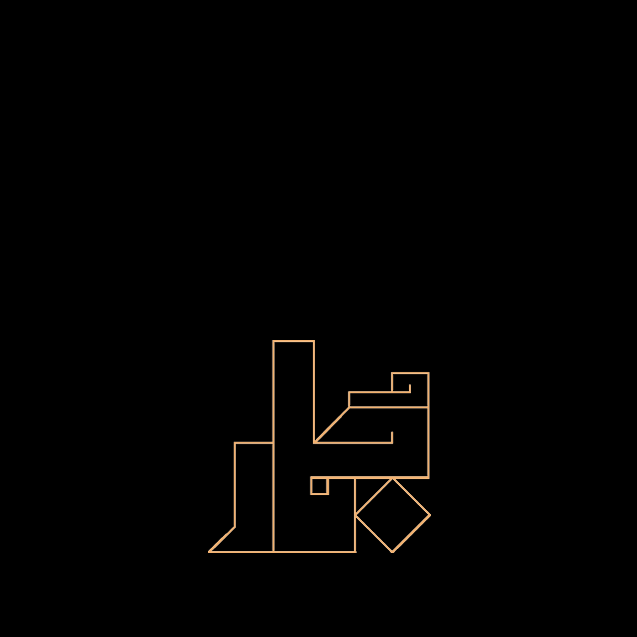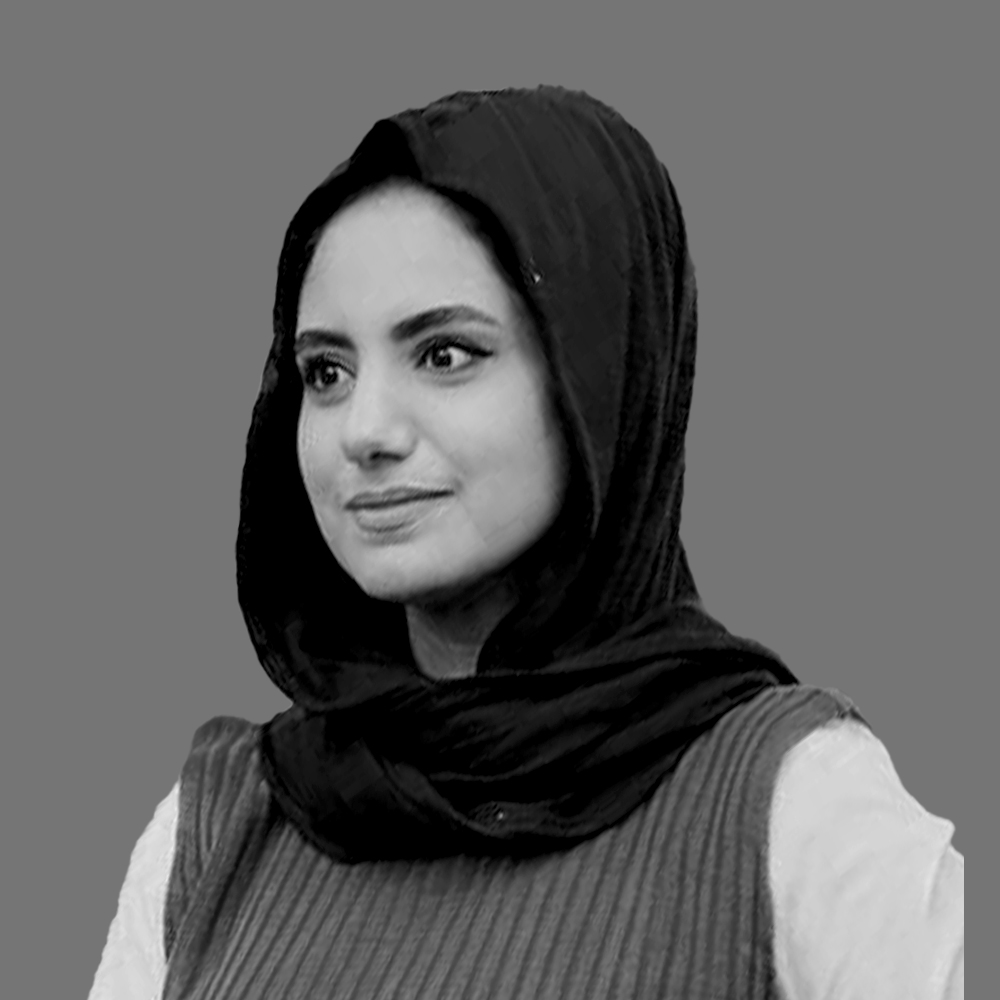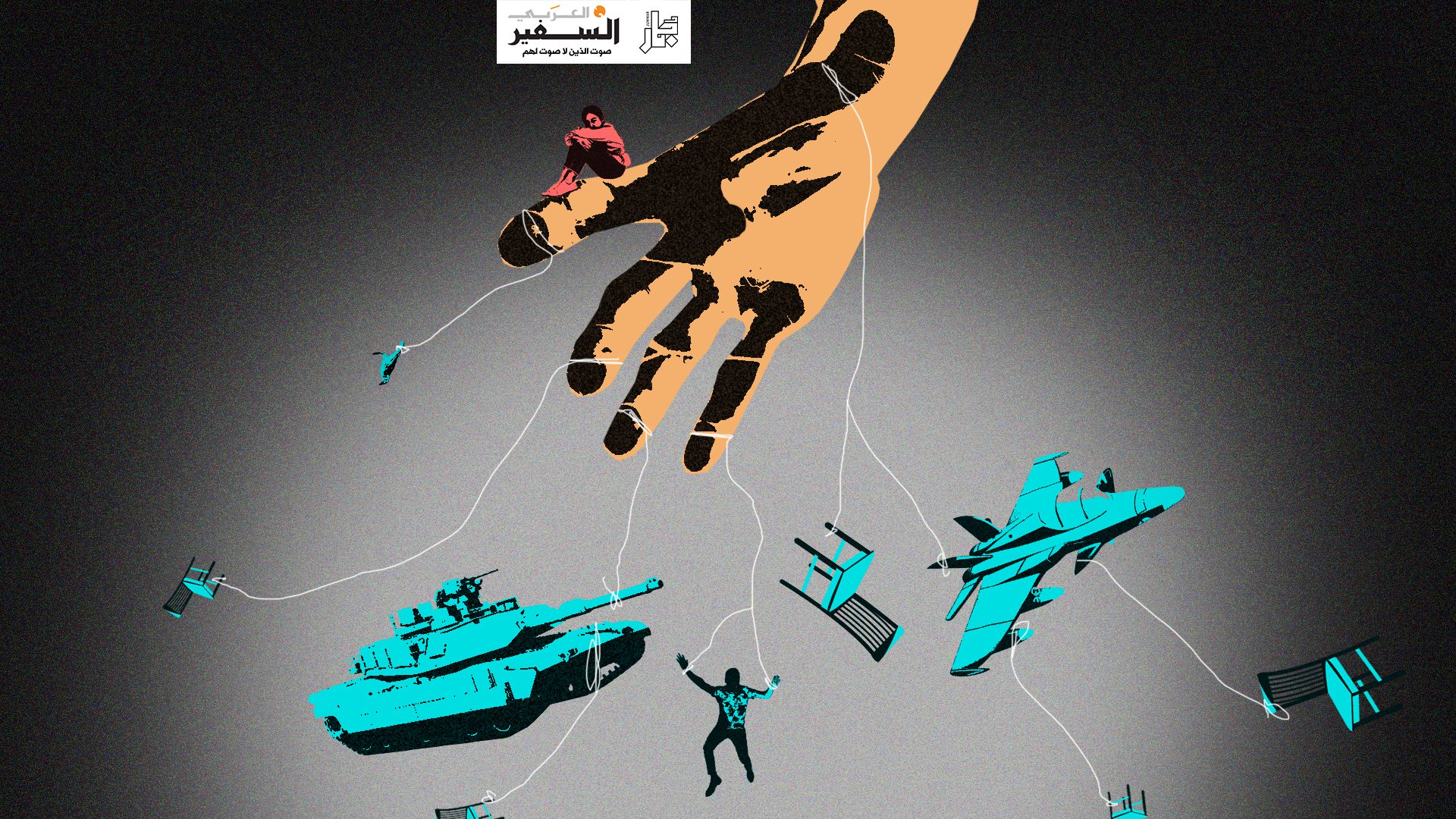We Waited for “The Matrix” to Fill Our World with Justice
02 Nov 2023
Everything seemed to come to a halt in the period leading up to the US occupation of Iraq in April 2003. Everyday life, educational institutions, and government offices all came to a standstill, almost as if a child had hit the pause button during a particularly terrifying scene in a movie.
My aunt used to stretch her little blanket which barely fit our tiny bodies, trying to cover all eight of us – her nieces and nephews. It was sometime between the end of March and the beginning of April 2003. Explosions flashed with intensity and snuck under the small blanket with us, as my aunt tried to lighten the mood by asking us to count the number of light flashes with each “boom”. Sometimes, she told us to smile, because God was taking a group photo of us and we had to look good so we could cherish the moment later.
Despite her frailty due to illness and pregnancy, her mere presence was enough to dispel our fears. With her little arms and gentle voice, she turned the chaos of bullets and explosions into a game that gave us some comfort. It was thanks to her that we were able to, for the most part, survive the ordeal.
Before the invasion
Everything seemed to come to a halt in the period leading up to the US occupation of Iraq in April 2003. Everyday life, educational institutions, and government offices all came to a standstill, almost as if a child had hit the pause button during a particularly terrifying scene in a movie.
I was just a few days over six years old when Baqubah, the capital city of the Diyala Governorate, was struck with fear and chaos. The “Baathist comrades” had already started building military barracks, digging trenches, and strategically placing sandbags and weapons. They forced the young men in the residential neighborhoods to take up arms, and the streets teemed with soldiers clad in olive uniforms. They placed machine guns and medium weapons on the rooftops of factories and government buildings, while we, the people, became human shields.
Adults could not stop talking about the different characteristics of various weapons, so I memorized the names of every firearm and learned their functions and specifications.
Upon hearing that the Baath Party mandated the enlistment of all individuals 15 and older, many youths who had previously gathered on the streets quickly dispersed. Some even said their final goodbyes to their loved ones, while mothers wept and wailed. The scars of Saddam’s past wars on the Iraqis were still far from healed.
Later, it became clear that the purported decision was merely a rumor orchestrated by the “comrades” to smuggle certain Baath Party officials to the Saladin Governorate. Notably, among those individuals was the Iraqi scientist Huda Salih Mahdi Ammash (1), famously known as “Mrs. Anthrax” by the US occupation forces.
But there were other reasons for our anxiousness than the rumors about compulsory military service. As the ship of our nation navigated towards danger, we listened intently to the passionate orations declaring that Saddam “would not surrender Iraq until it was a pile of dust.” At that moment, we realized that our fate was going to be a mixture of blood and dirt that that Saddam would leave for the Americans.
Diyala, the white chicken
The US forces initiated their attack on our governorate with a series of missile strikes. The initial target was the intelligence bureau in the New Baqubah area, followed by a military facility and Buhaira Garage, then Saad Camp near our home.
Diyala did not resist.
Despite the intense displays of bravado from the “comrades” before the arrival of US forces, their efforts proved to be in vain. The occupying troops took hold of the entire area in no more than two days.
During the occupation, the residents of Iraq’s southern regions, who fought the battles against the US forces, often derisively referred to Diyala as the “white chicken” due to its perceived weakness and tendency to surrender easily. They also gave this derogatory label to other governorates, including Wasit, Samawa, and various parts of larger cities that coexisted with the US troops.
All Diyala wanted, in that tumultuous time, was to make it through the havoc without losing any of its citizens. Despite suffering heavy casualties, the city strived to prevent further harm from befalling its people. However, the arrival of US troops only exacerbated the fear and unease felt by residents living near Saad Camp in Baqubah, situated in the heart of the Diyala Governorate. The tragedy had a profound impact, leaving the citizens of Diyala to grapple with the aftermath.
During that period, rumors circulated that the camp stored missiles, weapons of mass destruction, and nuclear bombs. There were also whispers that it was haunted by jinn and goblins. So the Americans bombed the place to purify it and us from its many curses.
“Vacate your homes immediately,” they instructed us via loudspeakers. Some people sought refuge in distant villages such as Hadd Mazyad, Shahraban, and Al-Sawa’id, where multiple families crowded into one house. Those without access to alternative shelter took a risk and stayed put.
Initially, my family of eleven sought refuge in Hadd Mazyad, a village 15 kilometers away from home. Despite the distance, we could still hear the sounds of detonations in the air.
To us, children, the time when we sought refuge with our families in the villages was our fondest memory of that period. We were too young to fully comprehend the events unfolding around us, unlike the adults who were preoccupied with the Al-Alam (2) channel’s broadcasts, which told them about the US army’s strength and its mission to topple the Iraqi regime. It was a beautiful time, nonetheless, for us, because all we cared about was that we got to spend time together while schools were closed, and our playtime extended well into the wee hours of the morning.
After nearly a month of traveling between villages, we eventually had to make the tough call to head back home. Our family’s finances were running low, and we couldn’t afford to keep going. We were left with two options: risking getting caught in one of the frequent bombings or waiting in the villages until the weapon depots were cleared.
The complete guide to survival
Amidst testing times, we were forced to grow up quickly and leave our childhood behind. Every day was a struggle for survival. We learned to tune out the deafening sounds of explosions and take safety measures, such as replacing our windowpanes with bags of dirt to avoid being struck by shrapnel in the event of a blast. In the absence of modern amenities, we had no choice but to draw on the wisdom of our forebears, reverting to age-old methods to get by. My siblings and I had to embark on long treks to remote areas to collect firewood for our mother, who relied on a neighbor’s clay oven to bake for us.
My siblings were braver than I, as they would venture out to the camp in broad daylight to retrieve the wooden crates and bring them home to be cut into smaller pieces. These green crates were of immense worth as they were crafted from the most exquisite wood and spared us the tedious task of scouring for twigs and cartons to use for fire. Our meals were prepared atop a rudimentary fire constructed by arranging ‘tabouk’ bricks (3) in a circular formation and igniting the wood underneath the cooking pot.
Beside collecting firewood, my favorite leisure time activity was running away to play a game where I aimed to hit US army tanks with stones. My peers and I were deeply influenced by the tragic death of the Palestinian child, Muhammad al-Durrah, and we wanted to resist, too, by throwing stones. However, the sight of a tank’s machine gun turning towards me made me acutely aware of my vulnerability and insignificance.
Before each blast, we would witness eerie green lights illuminating the sky and a fighter aircraft, which we dubbed “the ghost,” hovering above our houses. Amid these signals, the bloodcurdling screams of innocent children echoed throughout the area, filling us with fear. Nevertheless, my aunt’s calming voice continued to fill our home, as we grew more cautious and knowledgeable about how to survive the relentless bombings. The explosions shattered our windows, prompting us to peer through the remaining fragments to catch a glimpse of the aircrafts. We would venture outside and gather in the middle of our garden, seeking refuge under my aunt’s ‘abaya’.
Escaping the gallows
Everyone in the house was running in circles. My father, tears of joy running down his face, walked room to room yelling out “Saddam has fallen! The regime has fallen!” My mother and aunt erupted in cheers, and the elders shed tears of joy. We, children, didn’t understand what was happening until my uncle arrived a couple of days later. He sat down and explained in a calm voice: “we are going to the gallows, now that the Americans have come to liberate us.”
My father, uncle, and cousins had all been part of the opposition against Saddam’s regime for many years – something we had only learned later, as the family had never discussed the matter in our presence during Saddam’s time, when “walls had ears”. My uncle returned home happy with the victory of his lifelong cause against the dictator’s regime, but his joy was short-lived. The very next day, he was walking in his son’s funeral, a young man who was killed by the Baathists with thirty shots to the head.
Our house in troubled times
During that chaotic period, many individuals raided and looted government buildings, refugee camps, financial institutions, and grocery stores. The looting was either their way to assert the public’s rights or an assault triggered by their anger towards the Baath regime. The belief was that anything owned by the state was rightfully the property of the citizens and anything owned by Saddam Hussein should belong to the people. In some instances, individuals even went as far as taking mattresses and blankets from hospital beds.
As new markets for arms trade emerged, so did random shootings and conflicts. In Baqubah, a feud between two gangs left three people dead. Following this, a religious fatwa was issued, prohibiting theft and declaring all looted items as ‘haram’, and beseeching people to return what had been taken. Mosques opened their doors, not for worshippers, but to receive stolen items.
Before the fatwa, my brother had taken advantage of the chaos to seize a Kalashnikov. Upon his return, a confrontation ensued between him and my father, as my father demanded that my brother surrender the weapon. Despite their opposition to the Baath regime, many people like my father were steadfast in their belief that theft was not the answer. My father was not against the state itself, but rather the oppressive Baath that had taken control.
My father, along with others who shared his mentality, had faith that Iraq would change for the better. They believed this especially after the war ended in two months, imports began to flow and new goods entered the country. Furthermore, employees’ salaries were being paid in US dollars instead of the Iraqi dinar. It was a big relief for many Iraqis to see the image of “that American old man” on the US dollar banknotes, instead of Saddam’s face on the Iraqi currency.
“The Matrix” in our house
As young children, we were extremely excited about the arrival of color television and CDs. Every Thursday night, we rented some CDs and gathered to watch our favorite hero on the small screen. We were blown away by the hero’s strength as he effortlessly blocked all the gunshots with his bare hands.
My younger brother used to say that we needed The Matrix hero in Iraq to shield us from the constant gunfire. We had become well aware of what shots can do to person’s body, so we all shared his sentiment, except for my father, who laughed heartily at the naivety of our innocent wishes.
As the hero of The Matrix fought the villains on TV, there were real plans in place to turn us, children, into soldiers of the future and convince us that fighting against evil was our duty.
During that period, religious centers and mosques emerged that encouraged young children to memorize the holy Quran and offered them rewards for their dedication. Intrigued by the buzz among my peers, I resolved to look into the matter. It felt like a recruitment drive, as the instructor expounded on the significance of prayer, fasting, and combating non-believers. I was taught how to recite Quranic verses and was handed a hijab to wear. When I came home from classes, I discussed my choices with my father, who left the choice to me. It did not take me long, though, to decide against continuing with those classes. I know now that those who had stayed ended up joining the Al-Qaeda in 2006.
Our society was gripped with fear and apprehension as extremist religious ideologies dominated the atmosphere. Diyala had progressed from the phase of the “chicken” to this new state of extremism. The sounds of religious recordings and Quran recitations flooded the streets, and many mosques and centers started attracting children and teenagers, brainwashing them with jihadist notions. Both Shiite and Sunni groups appeared to employ the same methodologies.
Children were the main target. They were seen as easy to manipulate, like chess pieces on a board. The ideas were spread through loudspeakers on the minarets of mosques, while many parents did their best to cleanse their children’s ears and minds of any unwanted influence at the end of the day.
Many of us were influenced by the overwhelming discourse and joined jihadist movements that emerged from Baathist remnant cells and new armed groups like the 1920s Revolution Brigades and the Naqshbandi Movement, among others.
The US army launched a campaign of arbitrary arrests as a response, which led to the detention of teenagers and young men in hastily constructed detention centers. Many of these young persons entered prison while still on the fence regarding joining the jihadists, and came out of prison either much closer to extremist ideologies or weakened and completely broken.
Amid all these horrors, my aunt’s voice and words continued to offer us protection and a sense of safety, even though the war took the biggest toll on her. The child in her womb died due to her severe panic attacks, and shortly after, she joined him.
This article is part of “Twenty Years since the War on Iraq”, a joint production between Jummar and Assafir Al-Arabi, with the support of the Rosa Luxemburg Foundation.
Read More
My aunt used to stretch her little blanket which barely fit our tiny bodies, trying to cover all eight of us – her nieces and nephews. It was sometime between the end of March and the beginning of April 2003. Explosions flashed with intensity and snuck under the small blanket with us, as my aunt tried to lighten the mood by asking us to count the number of light flashes with each “boom”. Sometimes, she told us to smile, because God was taking a group photo of us and we had to look good so we could cherish the moment later.
Despite her frailty due to illness and pregnancy, her mere presence was enough to dispel our fears. With her little arms and gentle voice, she turned the chaos of bullets and explosions into a game that gave us some comfort. It was thanks to her that we were able to, for the most part, survive the ordeal.
Before the invasion
Everything seemed to come to a halt in the period leading up to the US occupation of Iraq in April 2003. Everyday life, educational institutions, and government offices all came to a standstill, almost as if a child had hit the pause button during a particularly terrifying scene in a movie.
I was just a few days over six years old when Baqubah, the capital city of the Diyala Governorate, was struck with fear and chaos. The “Baathist comrades” had already started building military barracks, digging trenches, and strategically placing sandbags and weapons. They forced the young men in the residential neighborhoods to take up arms, and the streets teemed with soldiers clad in olive uniforms. They placed machine guns and medium weapons on the rooftops of factories and government buildings, while we, the people, became human shields.
Adults could not stop talking about the different characteristics of various weapons, so I memorized the names of every firearm and learned their functions and specifications.
Upon hearing that the Baath Party mandated the enlistment of all individuals 15 and older, many youths who had previously gathered on the streets quickly dispersed. Some even said their final goodbyes to their loved ones, while mothers wept and wailed. The scars of Saddam’s past wars on the Iraqis were still far from healed.
Later, it became clear that the purported decision was merely a rumor orchestrated by the “comrades” to smuggle certain Baath Party officials to the Saladin Governorate. Notably, among those individuals was the Iraqi scientist Huda Salih Mahdi Ammash (1), famously known as “Mrs. Anthrax” by the US occupation forces.
But there were other reasons for our anxiousness than the rumors about compulsory military service. As the ship of our nation navigated towards danger, we listened intently to the passionate orations declaring that Saddam “would not surrender Iraq until it was a pile of dust.” At that moment, we realized that our fate was going to be a mixture of blood and dirt that that Saddam would leave for the Americans.
Diyala, the white chicken
The US forces initiated their attack on our governorate with a series of missile strikes. The initial target was the intelligence bureau in the New Baqubah area, followed by a military facility and Buhaira Garage, then Saad Camp near our home.
Diyala did not resist.
Despite the intense displays of bravado from the “comrades” before the arrival of US forces, their efforts proved to be in vain. The occupying troops took hold of the entire area in no more than two days.
During the occupation, the residents of Iraq’s southern regions, who fought the battles against the US forces, often derisively referred to Diyala as the “white chicken” due to its perceived weakness and tendency to surrender easily. They also gave this derogatory label to other governorates, including Wasit, Samawa, and various parts of larger cities that coexisted with the US troops.
All Diyala wanted, in that tumultuous time, was to make it through the havoc without losing any of its citizens. Despite suffering heavy casualties, the city strived to prevent further harm from befalling its people. However, the arrival of US troops only exacerbated the fear and unease felt by residents living near Saad Camp in Baqubah, situated in the heart of the Diyala Governorate. The tragedy had a profound impact, leaving the citizens of Diyala to grapple with the aftermath.
During that period, rumors circulated that the camp stored missiles, weapons of mass destruction, and nuclear bombs. There were also whispers that it was haunted by jinn and goblins. So the Americans bombed the place to purify it and us from its many curses.
“Vacate your homes immediately,” they instructed us via loudspeakers. Some people sought refuge in distant villages such as Hadd Mazyad, Shahraban, and Al-Sawa’id, where multiple families crowded into one house. Those without access to alternative shelter took a risk and stayed put.
Initially, my family of eleven sought refuge in Hadd Mazyad, a village 15 kilometers away from home. Despite the distance, we could still hear the sounds of detonations in the air.
To us, children, the time when we sought refuge with our families in the villages was our fondest memory of that period. We were too young to fully comprehend the events unfolding around us, unlike the adults who were preoccupied with the Al-Alam (2) channel’s broadcasts, which told them about the US army’s strength and its mission to topple the Iraqi regime. It was a beautiful time, nonetheless, for us, because all we cared about was that we got to spend time together while schools were closed, and our playtime extended well into the wee hours of the morning.
After nearly a month of traveling between villages, we eventually had to make the tough call to head back home. Our family’s finances were running low, and we couldn’t afford to keep going. We were left with two options: risking getting caught in one of the frequent bombings or waiting in the villages until the weapon depots were cleared.
The complete guide to survival
Amidst testing times, we were forced to grow up quickly and leave our childhood behind. Every day was a struggle for survival. We learned to tune out the deafening sounds of explosions and take safety measures, such as replacing our windowpanes with bags of dirt to avoid being struck by shrapnel in the event of a blast. In the absence of modern amenities, we had no choice but to draw on the wisdom of our forebears, reverting to age-old methods to get by. My siblings and I had to embark on long treks to remote areas to collect firewood for our mother, who relied on a neighbor’s clay oven to bake for us.
My siblings were braver than I, as they would venture out to the camp in broad daylight to retrieve the wooden crates and bring them home to be cut into smaller pieces. These green crates were of immense worth as they were crafted from the most exquisite wood and spared us the tedious task of scouring for twigs and cartons to use for fire. Our meals were prepared atop a rudimentary fire constructed by arranging ‘tabouk’ bricks (3) in a circular formation and igniting the wood underneath the cooking pot.
Beside collecting firewood, my favorite leisure time activity was running away to play a game where I aimed to hit US army tanks with stones. My peers and I were deeply influenced by the tragic death of the Palestinian child, Muhammad al-Durrah, and we wanted to resist, too, by throwing stones. However, the sight of a tank’s machine gun turning towards me made me acutely aware of my vulnerability and insignificance.
Before each blast, we would witness eerie green lights illuminating the sky and a fighter aircraft, which we dubbed “the ghost,” hovering above our houses. Amid these signals, the bloodcurdling screams of innocent children echoed throughout the area, filling us with fear. Nevertheless, my aunt’s calming voice continued to fill our home, as we grew more cautious and knowledgeable about how to survive the relentless bombings. The explosions shattered our windows, prompting us to peer through the remaining fragments to catch a glimpse of the aircrafts. We would venture outside and gather in the middle of our garden, seeking refuge under my aunt’s ‘abaya’.
Escaping the gallows
Everyone in the house was running in circles. My father, tears of joy running down his face, walked room to room yelling out “Saddam has fallen! The regime has fallen!” My mother and aunt erupted in cheers, and the elders shed tears of joy. We, children, didn’t understand what was happening until my uncle arrived a couple of days later. He sat down and explained in a calm voice: “we are going to the gallows, now that the Americans have come to liberate us.”
My father, uncle, and cousins had all been part of the opposition against Saddam’s regime for many years – something we had only learned later, as the family had never discussed the matter in our presence during Saddam’s time, when “walls had ears”. My uncle returned home happy with the victory of his lifelong cause against the dictator’s regime, but his joy was short-lived. The very next day, he was walking in his son’s funeral, a young man who was killed by the Baathists with thirty shots to the head.
Our house in troubled times
During that chaotic period, many individuals raided and looted government buildings, refugee camps, financial institutions, and grocery stores. The looting was either their way to assert the public’s rights or an assault triggered by their anger towards the Baath regime. The belief was that anything owned by the state was rightfully the property of the citizens and anything owned by Saddam Hussein should belong to the people. In some instances, individuals even went as far as taking mattresses and blankets from hospital beds.
As new markets for arms trade emerged, so did random shootings and conflicts. In Baqubah, a feud between two gangs left three people dead. Following this, a religious fatwa was issued, prohibiting theft and declaring all looted items as ‘haram’, and beseeching people to return what had been taken. Mosques opened their doors, not for worshippers, but to receive stolen items.
Before the fatwa, my brother had taken advantage of the chaos to seize a Kalashnikov. Upon his return, a confrontation ensued between him and my father, as my father demanded that my brother surrender the weapon. Despite their opposition to the Baath regime, many people like my father were steadfast in their belief that theft was not the answer. My father was not against the state itself, but rather the oppressive Baath that had taken control.
My father, along with others who shared his mentality, had faith that Iraq would change for the better. They believed this especially after the war ended in two months, imports began to flow and new goods entered the country. Furthermore, employees’ salaries were being paid in US dollars instead of the Iraqi dinar. It was a big relief for many Iraqis to see the image of “that American old man” on the US dollar banknotes, instead of Saddam’s face on the Iraqi currency.
“The Matrix” in our house
As young children, we were extremely excited about the arrival of color television and CDs. Every Thursday night, we rented some CDs and gathered to watch our favorite hero on the small screen. We were blown away by the hero’s strength as he effortlessly blocked all the gunshots with his bare hands.
My younger brother used to say that we needed The Matrix hero in Iraq to shield us from the constant gunfire. We had become well aware of what shots can do to person’s body, so we all shared his sentiment, except for my father, who laughed heartily at the naivety of our innocent wishes.
As the hero of The Matrix fought the villains on TV, there were real plans in place to turn us, children, into soldiers of the future and convince us that fighting against evil was our duty.
During that period, religious centers and mosques emerged that encouraged young children to memorize the holy Quran and offered them rewards for their dedication. Intrigued by the buzz among my peers, I resolved to look into the matter. It felt like a recruitment drive, as the instructor expounded on the significance of prayer, fasting, and combating non-believers. I was taught how to recite Quranic verses and was handed a hijab to wear. When I came home from classes, I discussed my choices with my father, who left the choice to me. It did not take me long, though, to decide against continuing with those classes. I know now that those who had stayed ended up joining the Al-Qaeda in 2006.
Our society was gripped with fear and apprehension as extremist religious ideologies dominated the atmosphere. Diyala had progressed from the phase of the “chicken” to this new state of extremism. The sounds of religious recordings and Quran recitations flooded the streets, and many mosques and centers started attracting children and teenagers, brainwashing them with jihadist notions. Both Shiite and Sunni groups appeared to employ the same methodologies.
Children were the main target. They were seen as easy to manipulate, like chess pieces on a board. The ideas were spread through loudspeakers on the minarets of mosques, while many parents did their best to cleanse their children’s ears and minds of any unwanted influence at the end of the day.
Many of us were influenced by the overwhelming discourse and joined jihadist movements that emerged from Baathist remnant cells and new armed groups like the 1920s Revolution Brigades and the Naqshbandi Movement, among others.
The US army launched a campaign of arbitrary arrests as a response, which led to the detention of teenagers and young men in hastily constructed detention centers. Many of these young persons entered prison while still on the fence regarding joining the jihadists, and came out of prison either much closer to extremist ideologies or weakened and completely broken.
Amid all these horrors, my aunt’s voice and words continued to offer us protection and a sense of safety, even though the war took the biggest toll on her. The child in her womb died due to her severe panic attacks, and shortly after, she joined him.
This article is part of “Twenty Years since the War on Iraq”, a joint production between Jummar and Assafir Al-Arabi, with the support of the Rosa Luxemburg Foundation.
